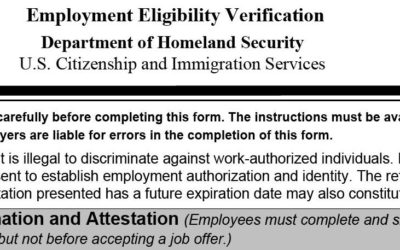EAST TENNESSEE EMPLOYMENT LAW ADVISER
Providing insight on developments in labor and employment law affecting East Tennessee employers and employees.

UPDATE: U.S. Department of Labor Provides Guidance On Whether Parents of Minor Children Who Choose To Attend Remote K-12 Classes Are Entitled To Paid Leave Under The FFCRA
On August 18, 2020, I posted a blog entitled “Are Parents of Minor Children Who Choose To Attend Remote K-12 Classes Entitled To Paid Leave Under The FFCRA?” At that time, I commented that the United States Department of Labor (DOL) had not yet to addressed the question and provided ...

Are Parents of Minor Children Who Choose To Attend Remote K-12 Classes Entitled To Paid Leave Under The FFCRA?
When the Families First Coronavirus Response Act (“FFCRA”) was passed in late March 2020, the nation was confronted with a fairly uniform new reality in terms of K-12 education. Both public and private schools across the United States closed their doors and quickly attempted to reopen in an online setting ...

EEOC and CDC Resources for Employers Addressing the Coronavirus
As the Coronavirus continues to spread throughout the United States employers are having to address a number of questions about managing and protecting their workforce. Included on the ever-growing list of items keeping managers up at night are concerns about compliance with the federal Americans with Disabilities Act (ADA) and ...

Employers Should Exercise Caution In How They Treat FMLA Leave Under Attendance Policies
Employers subject to the Family and Medical Leave Act (FMLA) must allow covered employees up to 12 weeks of leave per year for certain needs, including the employees’ own “serious health condition.” The FMLA and its implementing regulations further provide that an employer subject to the FMLA cannot interfere with ...

U.S. Supreme Court to Decide Whether Title VII Applies to Sexual Orientation Discrimination
Over the last three years I have posted several times concerning efforts by the Equal Employment Opportunity Commission (EEOC) and private litigants to have federal courts construe federal statutory protections against workplace discrimination on the basis of “sex” to include claims of discrimination on account of sexual orientation. Title VII ...

Tennessee Healthcare Employers Must Now Report Positive Drug Test Results For Its Licensed Healthcare Employees
On July 1, 2017, over 130 new laws recently enacted by the Tennessee legislature became effective. One of those imposes new reporting requirements on employers in the healthcare sector whose licensed healthcare employees test positive on a drug test or refuse to submit to a drug test when directed to ...

The Growing Danger in Using Prior Income to Perpetuate Wage Distinctions
Many of us have been in a job interview on one side of the table or the other during which this very common question is asked - “what are you currently making?” There is now, however, a growing movement questioning the legitimacy of inquiries regarding an applicant’s prior wages for ...

When Friend Requests on Social Media Aren’t So Friendly
More businesses are requiring their employees who regularly work with customers or who possess certain types of sensitive information to sign some form of contract restricting the employee’s ability to engage in competitive activity once the employment terminates. I have discussed these types of agreements in several previous posts. Employee ...

Further Developments On Extending Title VII Protection To Sexual Orientation Discrimination
In August 2016, I discussed a recent decision of the United States 7th Circuit Court of Appeals which held “that Title VII does not redress sexual orientation discrimination.” As I mentioned in that post, the 7th Circuit’s decision was the first federal appeals court opinion on that subject since the ...

Employers Must Use a Revised Version of Form I-9 Starting September 18, 2017
The United States Citizenship and Immigration Services (USCIS) has released a revised version of Form I-9, Employment Eligibility Verification. All employers are expected to use the revised form by September 18, 2017. Failure to use the new form after that date will constitute non-compliance with federal law and may subject ...



